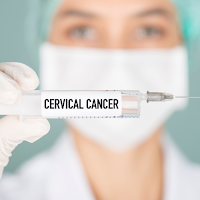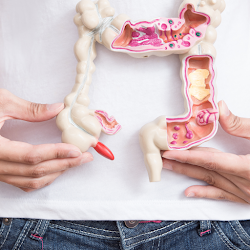For fighting off illness and diseases, it is always better to prevent infection and disease over treatment. February will be National Cancer Prevention Awareness Month and is the ideal time to ensure that you and your family are taking the necessary steps to maintain health. Being healthy can lower the chance of developing cancer and other illnesses. Lower your risk now by following these five steps:
- Keep a healthy diet and exercise routine.
Making sure you eat a balanced lifestyle and regular exercise are proactive methods to avoid cancer. Regular exercise and a balanced diet will help you feel healthier and maintain good health. Begin with these suggestions:
Eat vegetables, fruits, whole grains, whole grains, and beans to make up a healthy diet. Vitamins and minerals, phytonutrients, and fiber are plentiful in these meals. A healthy lifestyle is dependent on these elements.
Reduce your consumption of red meats like beef, pork, and lamb. Limiting your consumption to 12-18 ounces weekly is suggested to avoid colorectal cancer.
Maintain a healthy weight that is based on your size and your lifestyle. Talk to an expert in lung cancer in Delhi for the most effective cancer treatment.
Engage in 150 minutes of moderate exercise and 75 minutes of vigorous exercise each week, as the American Heart Association recommends.
Avoid smoking or using tobacco products.
Smoking causes lung damage and may lead to cancer. Smokers who are more habitual or smoke for a longer duration are more likely to develop lung cancer. Consumption of tobacco and cigarettes can result in throat, mouth, or larynx cancers. If you smoke tobacco and smoke cigarettes smoking, you could cause less well-known cancers like bladder and Esophagus Cancers. In addition, smoking cigarettes can cause secondhand smoke to harm your loved ones. Anyone who is exposed to secondary smoke has a greater chance of developing cancer of the lung.
Stopping smoking cigarettes can decrease your risk of developing cancer. For instance, throat, mouth, or larynx cancer risk is dramatically reduced. About 50% of the risks associated with lung cancer are decreased in the 10 to 15 years following stopping smoking.
- Take advantage of available cancer screenings.
If you're cancer-free regular cancer screenings could bring assurance. Additionally, screenings can identify certain cancers at an earlier stage, making them less difficult to treat. Screening for cancer is based on gender, age, family history, and lifestyle choices, like smoking. Current screenings for cancer can be found for
Breast cancer
Cervical cancer
Colorectal cancer
Lung cancer
Prostate cancer
Skin cancer
- Limit exposure to sunlight and radiation.
Exposure to radiation, which includes sunlight, can trigger various types of cancer. For example, sun exposure without adequate protection could result in skin cancer. If you are going to be in the sun for a prolonged period, you should wear an open-brim hat and a long-sleeved t-shirt. Radiation from radon, which can be present within your house and may cause lung cancer, is not a frequent cause of radiation. Radiation from commonplace sources, like cell phones and microwaves, does not increase cancer risk.
- Moderate or abstain from drinking alcohol.
It is recommended not to drink alcohol to prevent cancer. Alcohol in all forms, including wine, beer, and liquor, has been associated with seven types of cancer. Some cancers include colorectal, oral, liver, throat, voice box, and esophagus. Alcohol consumption should be restricted to one drink per day for women and two for males daily.
Healthy lifestyle choices can't cure cancer. However, they can reduce the risk. Prevention and awareness of cancer begin with being educated about the risk factors.




.png)

